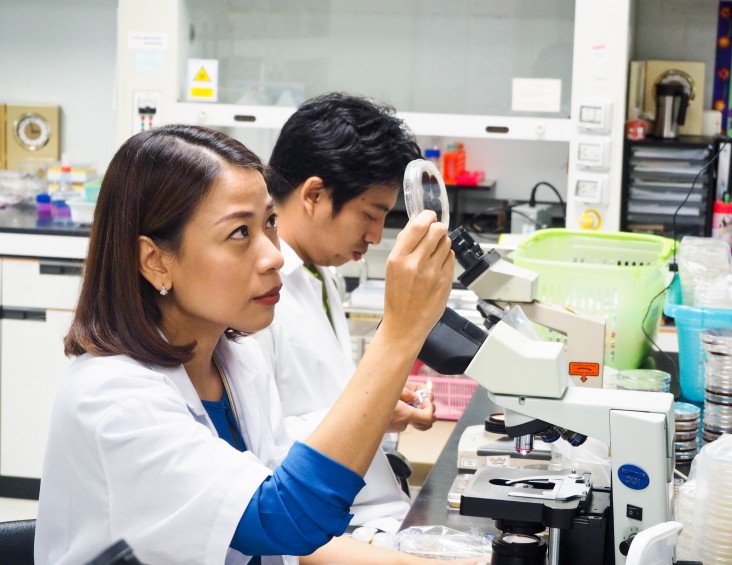
March 2015—Scientist Honglada “Lada” Thoetkiattikul has moved from examining microbes under a microscope to pitching policy recommendations that could affect the sharing of biological resources within the Association of Southeast Asian Nations (ASEAN).
Upon completing postdoctoral work at the University of Georgia, Thoetkiattikul worked as a researcher with the Biotechnology Center of Thailand’s National Science Park, the country’s leading science and technology institute. But in 2014, after many years conducting research, she said was ready for new challenges outside the lab.
That’s when she learned about the ASEAN-U.S. Science and Technology Fellows Program. Launched in April 2014 with support from USAID and the U.S. Mission to ASEAN, the program seeks citizens from the 10 ASEAN countries to help improve science-based policy-making in the region. Thoetkiattikul could apply her skills and experience as a scientist to engage with policymakers in the region.
As part of the first wave of fellows, Thoetkiattikul worked with the National Science and Technology Development Agency to help develop plans to establish Thailand’s first biotechnology resources center. Once the center is established, research institutions, academia and the private sector will be able to pool their resources to create a culture collection with over 15,000 species of biological microorganisms that have a range of applications in medicine, manufacturing and food industries.
"Our resources are very high value," said Thoetkiattikul. "A pharmaceutical company, they come in and take our own bacteria that can produce drugs, and they sell them [the drugs] in Thailand, and that’s not good. So what we’re trying to do is protect our resources."
Thoetkiattikul drafted policy recommendations to develop a regional protocol for sharing and managing genetic resources from within the center, a necessary part of ensuring transparency and fairness in sharing genetic resources for research or commercial purposes.
"When I got involved in this area, I know that all the regulations that they made before were made by somebody who doesn’t really know science, or maybe they know, but they don’t really practice," said Thoetkiattikul. "So when I came in to this position, I know what’s going on with the lab and also the culture collection that we have, what kind of steps that we need to do. So I think I can use my knowledge and help those policymakers to understand more so we can work together, policy and science."
Through the program, Thoetkiattikul and five other fellows from Indonesia, Myanmar, the Philippines and Vietnam have received leadership training and opportunities to experience regional and national-level policy-making firsthand.
“By learning and doing research, I was able to contribute to the scientific community. But by being involved in policy, I can contribute my knowledge to the wider population,” said Thoetkiattikul. She hopes that with the tools and resources she has gained, she can work to improve national and regional-level biotechnology policies and priorities in the future.
The ASEAN-U.S. Science and Technology Fellows Program currently lasts one year for fellows. The program works to advance regional cooperation among the ASEAN countries, strengthen science-based policy-making, and empower ASEAN scientists to take a more prominent role in their respective country’s efforts to integrate into the ASEAN community.
LINKS
Follow @USAIDAsia, on Facebook, on Flickr, on YouTube







Comment
Make a general inquiry or suggest an improvement.